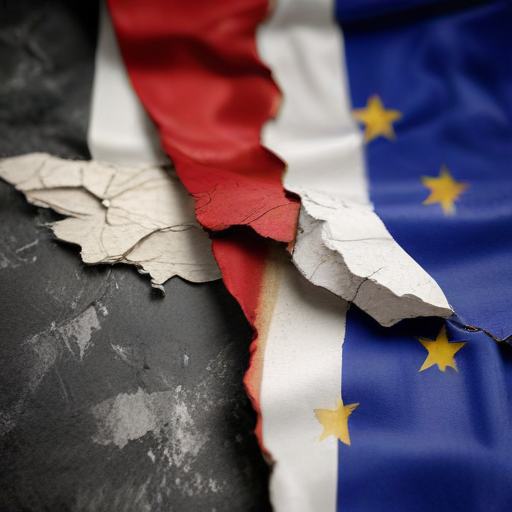The recent political upheaval in France, marked by the fall of Prime Minister Michel Barnier’s government following a no-confidence vote, is raising alarms not just within the country but across Europe. This turmoil comes at a time when France is already grappling with significant political and economic challenges. With France and Germany typically viewed as the driving forces behind the European Union (EU), the current instability of both nations raises questions about the EU’s capacity to address pressing issues, particularly the security threats posed by Russia and the ongoing support for Ukraine.
Germany is preparing for a snap general election in February due to its own political fragmentation, exacerbating concerns about the EU’s strength and unity. There’s anxiety over how the potential return of former President Donald Trump to the White House could affect U.S. military aid to Ukraine and European defense spending. These developments further contribute to a sense of uncertainty about the EU’s future leadership and direction.
The political environment in France appears particularly bleak, with President Emmanuel Macron needing to appoint a new prime minister while navigating a fractured parliament. With the three major political factions in the legislature at odds, the ability to implement needed reforms and manage the national budget is severely compromised. France’s status as the second-largest economy in the eurozone adds to the stakes, as its expanding budget deficit and skyrocketing government debt could have profound effects on the broader eurozone, raising concerns among taxpayers about the cost of living and economic stability.
Despite the chaos, Macron attempts to project confidence in France’s economic resilience, asserting that the country possesses stable institutions and a solid foundation for growth. This optimistic messaging is essential, as it seeks to allay fears and foster a sense of stability amid rising uncertainty.
In summary, while France is encountering significant political turmoil that poses challenges for the EU, this situation also highlights the urgent need for decisive leadership within the bloc. The hope remains that through resilience and strategic reforms, France can stabilize its political landscape and contribute to a unified European response to global threats.
It’s essential to remain optimistic that the democratic processes in France can bring about the necessary changes, fostering a more stable political landscape that will benefit not only French citizens but also the whole of Europe.
